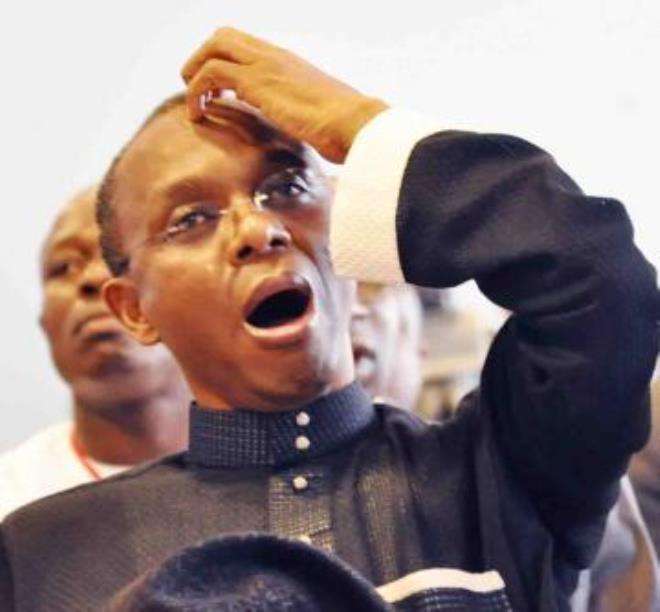Nigerian authorities say Shia leader Ibrahim al-Zakzaky, who has been arrested and whose family and supporters have faced a bloody crackdown, will face prosecution.
On Saturday, Nasir al-Rufai, the governor of Kaduna State in north-central Nigeria, where Zakzaky was arrested in his home city of Zaria last week, said the cleric “will be prosecuted for any crimes that he may have committed,” Nigerian newspaper THISDAY reported on Sunday.
“That is the decision for the federal authorities. There are state and federal crimes,” the official added, making it clear that the case would be brought against the cleric by Abuja rather than local officials. “There is a government and a constitution and we are resolved to follow the constitution and due process.”
Nigerian forces raided the house of Zakzaky, the head of the Islamic Movement of Nigeria (IMN), last Sunday and arrested him after reportedly killing individuals attempting to protect him, including one of the movement’s senior leaders and its spokesman.
Nigerian soldiers had opened fire on Shia Muslims attending a ceremony at a religious center in the city the previous day, accusing the Shias of stopping the convoy of Nigeria’s Chief of Army Staff Lieutenant General Tukur Yusuf Buratai and attempting to assassinate him. Zakzaky was planning a speech at the center, and the IMN has strongly rejected the assassination accusation.
The attack on Zakzaky’s residence and the violence during the road incident led to the deaths of hundreds of the members of the religious community, including three of Zakzaky’s sons.
The IMN spokesman, Ibrahim Usman, meanwhile, rejected the accusation by the governor that the movement had “blocked roads for four days” during the religious ceremony, which marked Arba’een, the fortieth day to follow the martyrdom anniversary of Imam Hussein (PBUH), the grandson of Prophet Muhammad (PBUH) and the third Shia Imam.
“Clearly, this is a deliberate attempt to twist the facts. During the Arba’een symbolic treks, we block only limited part of the road, and this is to protect persons from traffic accidents, control mass movement and avoid chaos on the roads,” Usman said.
“The governor here was trying to give the impression of a complete occupation of a lane for four days. That was not the case. Blocks were only from junction to junction on the roads. The public was informed about these little inconveniences with apologies on public radio and television stations throughout the trek. Road users during the period would be surprised by the governor’s statement,” he said.
Rufai has also announced that a judicial commission of inquiry has been set up to look into the attack on the cleric’s residence.
The IMN has said it does not trust any likely findings by the state investigators, adding that authorities have refused to listen to the Shia community about what happened in Zaria and are only focusing on the army’s account.
Rufai also claimed the Shiite of illegal acquisition of land upon which their Hussainiyya headquarters was built in Zaria.
In its reaction, the Shiite Muslims said based on the governor’s broadcast, it was clear that he was “more like an extremist anti-Shi’ite governor and not a state governor”.
In a statement signed by the President of the Media Forum of the Islamic Movement, Mallam Ibrahim Musa, the group noted that the governor merely spent time collecting propaganda details indicting the movement.
“In that circumstance, no justice should be expected from a speech made up with details only provided by the antagonistic culprits without hearing from the other party who are the victims in this case,” the statement said.
/129

